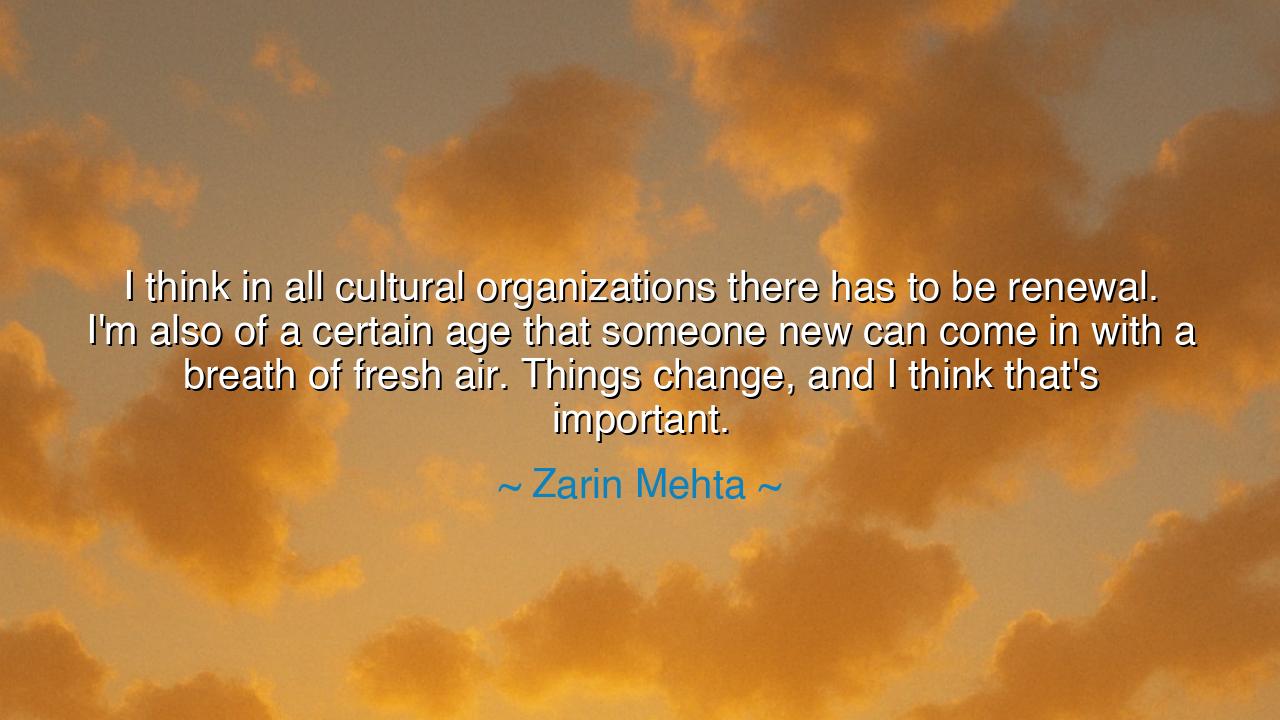
I think in all cultural organizations there has to be renewal.
I think in all cultural organizations there has to be renewal. I'm also of a certain age that someone new can come in with a breath of fresh air. Things change, and I think that's important.






In the words of Zarin Mehta, “I think in all cultural organizations there has to be renewal. I’m also of a certain age that someone new can come in with a breath of fresh air. Things change, and I think that’s important.” These are the words of a man who has spent his life amid the great symphonies of art and music, a man who has witnessed the rise and fall of artistic eras. Mehta, the longtime leader of the New York Philharmonic and son of the legendary violinist Mehli Mehta, speaks here not only of orchestras and art houses but of life itself. His wisdom is born of humility—the recognition that no institution, no generation, and no soul can remain alive without the sacred act of renewal.
In ancient times, the sages understood that the universe itself is a symphony of change. The Greeks called it metamorphosis, the Hindus samsara, and the poets simply called it life. From birth to decay, from dusk to dawn, from silence to song, all things move in cycles of renewal. When Mehta speaks of “someone new” bringing a breath of fresh air, he invokes this timeless rhythm: the idea that vitality comes not from clinging to the old but from allowing the new to breathe life into what has grown weary. Even the grandest of temples must someday open its doors to new worshippers, and even the most revered of orchestras must learn new melodies to stay alive.
Mehta’s insight comes from decades of leading musicians, artists, and administrators, where tradition often stands in tension with innovation. A cultural organization, like a great tree, survives only if it continues to grow. Its roots—the legacy of its founders—anchor it to history, but its branches must stretch ever upward toward the light of new ideas. Without renewal, the roots rot, and the branches wither. The beauty of Mehta’s wisdom lies in his willingness to step aside—to make space for those who come after him. In this humility lies a powerful truth: that leadership is not possession, but stewardship. The wise do not hoard authority—they prepare the way for the next generation to flourish.
Consider the example of Leonardo da Vinci and his pupil Francesco Melzi. Leonardo, near the end of his life, taught his young apprentice everything he knew about anatomy, art, and invention. He understood that the genius of one man must become the seed for many others. His art evolved not just through his own hands, but through those he inspired to carry his vision forward. So too, in Mehta’s words, we find that renewal is not the death of tradition—it is its continuation through transformation. The music of an orchestra does not end when the conductor leaves the podium; it endures because another steps forward, baton in hand, carrying the melody onward.
But the message is not only for institutions—it is for every soul. Within each of us exists the need for personal renewal. If we cling too tightly to what we once were—our old beliefs, our habits, our certainties—we become stagnant, like a river dammed by fear. Mehta’s words call us to embrace the courage of change, to welcome the new breath that can rekindle our creativity, our compassion, and our sense of purpose. Renewal may be uncomfortable, for it requires letting go, but as the ancients taught, the phoenix cannot be reborn unless it first burns.
The lesson is clear: growth demands surrender. Whether in art, in leadership, or in life, we must make peace with impermanence. To resist renewal is to resist life itself. The elder must






AAdministratorAdministrator
Welcome, honored guests. Please leave a comment, we will respond soon